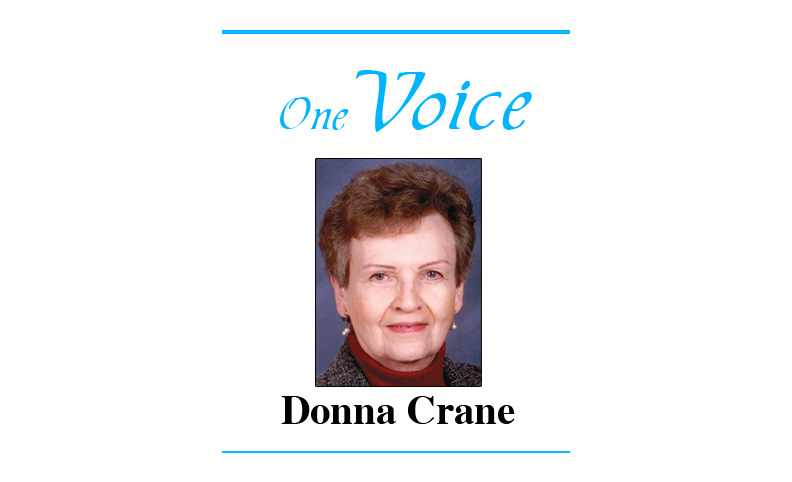
Second of a three parts
The first part is at thevoice.us/facebook-whistleblower-reveals-conflicts-amplified-hate.
Frances Haugen said in her time with Facebook she saw, “conflicts of interest between what was good for the public and what was good for Facebook.” Scott Pelley reports on a recent CBS 60 Minutes television show. Frances Haugen, who quit Facebook because of polarizing information on Facebook and its failure to control divisive content. Her discussion with CBS continues this week. Last week Haugen accused Facebook of conflicts which amplified hate.
“Frances Haugen: And one of the consequences of how Facebook is picking out that content today is it is — optimizing for content that gets engagement, or reaction. But its own research is showing that content that is hateful, that is divisive, that is polarizing, it’s easier to inspire people to anger than it is to other emotions.’
“Scott Pelley: Misinformation, angry content– is enticing to people and keep–’
“Frances Haugen: Very enticing.’
“Scott Pelley:–keeps them on the platform.’
“Frances Haugen: Yes. Facebook has realized that if they change the algorithm to be safer, people will spend less time on the site, they’ll click on less ads, they’ll make less money.
“Scott Pelley: Haugen says Facebook understood the danger to the 2020 Election. So, it turned on safety systems to reduce misinformation, but many of those changes, she says, were temporary.’
“Frances Haugen: And as soon as the election was over, they turned them back off or they changed the settings back to what they were before, to prioritize growth over safety.
“And that really feels like a betrayal of democracy to me.
“Facebook says some of the safety systems remained. But, after the election, Facebook was used by some to organize the January 6th insurrection. Prosecutors cite Facebook posts as evidence, photos of armed partisans and text including, ‘by bullet or ballot restoration of the republic is coming!’ Extremists used many platforms, but Facebook is a recurring theme.
“Scott Pelley: After the attack, Facebook employees raged on an internal message board copied by Haugen. ‘…Haven’t we had enough time to figure out how to manage discourse without enabling violence?” We looked for positive comments and found this, ‘I don’t think our leadership team ignores data, ignores dissent, ignores truth…’ but that drew this reply, “welcome to Facebook! I see you just joined in November 2020… we have been watching… wishy-washy actions of company leadership for years now. …Colleagues… cannot conscience working for a company that does not do more to mitigate the negative effects of its platform.”
“Scott Pelley: Facebook essentially amplifies the worst of human nature.
“Frances Haugen: It’s one of these unfortunate consequences, right? No one at Facebook is malevolent, but the incentives are misaligned, right? Like, Facebook makes more money when you consume more content. People enjoy engaging with things that elicit an emotional reaction. And the more anger that they get exposed to, the more they interact and the more they consume.’
“Scott Pelley: ‘That dynamic led to a complaint to Facebook by major political parties across Europe. This 2019 internal report obtained by Haugen says that the parties, “…feel strongly that the change to the algorithm has forced them to skew negative in their communications on Facebook… leading them into more extreme policy positions.’
“Scott Pelley: The European political parties were essentially saying to Facebook the way you’ve written your algorithm is changing the way we lead our countries.’
“Frances Haugen: Yes. You are forcing us to take positions that we don’t like, that we know are bad for society. We know if we don’t take those positions, we won’t win in the marketplace of social media.’
“Scott Pelley: Evidence of harm, she says, extends to Facebook’s Instagram app.
“One of the Facebook internal studies that you found talks about how Instagram harms teenage girls. One study says 13.5% of teen girls say Instagram makes thoughts of suicide worse; 17% of teen girls say Instagram makes eating disorders worse.’
“Frances Haugen: And what’s super tragic is Facebook’s own research says, as these young women begin to consume this, this eating disorder content, they get more and more depressed. And it actually makes them use the app more. And so, they end up in this feedback cycle where they hate their bodies more and more. Facebook’s own research says it is not just the Instagram is dangerous for teenagers, that it harms teenagers, it’s that it is distinctly worse than other forms of social media.’
““Scott Pelley: Facebook said, just last week, it would postpone plans to create an Instagram for younger children.
“Last month, Haugen’s lawyers filed at least eight complaints with the Securities and Exchange Commission which enforces the law in financial markets. The complaints compare the internal research with the company’s public face, often that of CEO Mark Zuckerberg, who testified remotely to Congress last March.”
Continued at thevoice.us/frances-haugen-facebook-chooses-profit-over-safety

